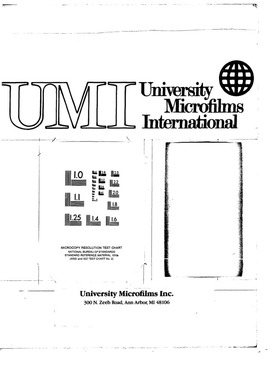| dc.contributor.author | Guttman, Michael Allan, | en_US |
| dc.date.accessioned | 2013-08-16T12:29:28Z | |
| dc.date.available | 2013-08-16T12:29:28Z | |
| dc.date.issued | 1985 | en_US |
| dc.identifier.uri | https://hdl.handle.net/11244/5406 | |
| dc.description.abstract | The effect of introducing a stress management and coping skills package as an adjunct to the chemical dependency treatment process was studied, using eighty subjects in two residential treatment centers using a randomly selected two group pre-post test design. The skills training was provided in addition to the standard treatment program, using pre and post test scores on the Institute for Personality and Ability Testing Anxiety Scale Questionnaire. The t-test for paired observations on the Anxiety Scale Questionnaire were significant at the .05 level for the experimental group but not for the control group. It was concluded that Mind-Body Integration had a significant impact in reducing stress in this population. | en_US |
| dc.format.extent | ix, 56 leaves ; | en_US |
| dc.subject | Mind and body. | en_US |
| dc.subject | Education, Reading. | en_US |
| dc.subject | Education, Health. | en_US |
| dc.subject | Drug abuse. | en_US |
| dc.title | Mind-Body Integration as an adjunct to chemical dependency treatment / | en_US |
| dc.type | Thesis | en_US |
| dc.thesis.degree | Ph.D. | en_US |
| dc.thesis.degreeDiscipline | Jeannine Rainbolt College of Education | en_US |
| dc.note | Source: Dissertation Abstracts International, Volume: 47-04, Section: A, page: 1198. | en_US |
| ou.identifier | (UMI)AAI8613724 | en_US |
| ou.group | Jeannine Rainbolt College of Education | |
